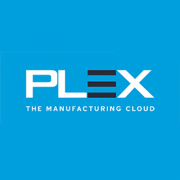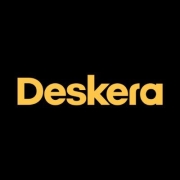Enterprise Resource Planning for Manufacturing integrates various functions into one complete system to streamline processes and information across the organization.
ERP systems in manufacturing bring together management, operational activities, inventory, planning, and finance. By synchronizing these aspects, manufacturers can improve efficiency and reduce costs. Users have reported improvements in production planning, real-time data analysis, and better resource allocation.
What are the essential features of ERP for Manufacturing?ERP systems in manufacturing are implemented in sectors such as automotive, electronics, and food production. These solutions help track inventory levels across multiple locations, manage complex supply chains, and ensure product quality compliance. This system assists in achieving consistency and accuracy across all processes.
These systems are beneficial for creating a centralized platform that manages all aspects of production efficiently. Organizations can achieve transparency, better control, and strategic planning capabilities, which are important for staying competitive in the market.
| Product | Market Share (%) |
|---|---|
| Oracle E-Business Suite | 15.1% |
| Ramco ERP | 14.9% |
| Epicor Kinetic | 14.9% |
| Other | 55.1% |






















Implementing Enterprise Resource Planning systems can streamline your manufacturing processes by integrating various business functions including inventory management, order processing, and production scheduling. It provides real-time data access, optimizing supply chain management and reducing downtime. With accurate forecasting, manufacturing can become more cost-efficient, timely, and responsive to market demands.
What should you consider when selecting Enterprise Resource Planning software for your manufacturing business?When choosing an Enterprise Resource Planning system, consider scalability, industry-specific functionalities, ease of integration with existing systems, and user-friendliness. Evaluate vendor reputation, support and training services, and cost of ownership. Prioritize software offering real-time analytics, IoT integration, and cloud capabilities to ensure long-term benefits and adaptability to changing manufacturing needs.
How can Enterprise Resource Planning assist with inventory management in manufacturing?With an Enterprise Resource Planning system, you can achieve superior control over inventory levels, reducing excess stock and minimizing shortages. Real-time tracking helps optimize reorder points and provides insights into inventory turnover rates. Automated workflows and demand forecasting ensure just-in-time production, enhancing operational efficiency and reducing holding costs.
What role does Enterprise Resource Planning play in enhancing supply chain transparency?Enterprise Resource Planning systems enhance supply chain transparency by offering comprehensive visibility into every stage of the supply chain. This transparency helps identify bottlenecks, improves supplier collaboration, and ensures timely delivery of materials. By integrating with IoT and AI technologies, ERP systems provide predictive analytics that aid in making informed strategic decisions, leading to a resilient and agile supply chain.
How can Enterprise Resource Planning solutions support compliance and quality control in manufacturing?Enterprise Resource Planning systems facilitate compliance by automatically generating reports and maintaining audit trails for regulatory standards. Integrated quality management tools help in documenting standard operating procedures, identifying defects, and managing corrective actions. ERP systems also provide traceability, ensuring that all products meet quality standards and minimize the risk of non-compliance penalties.